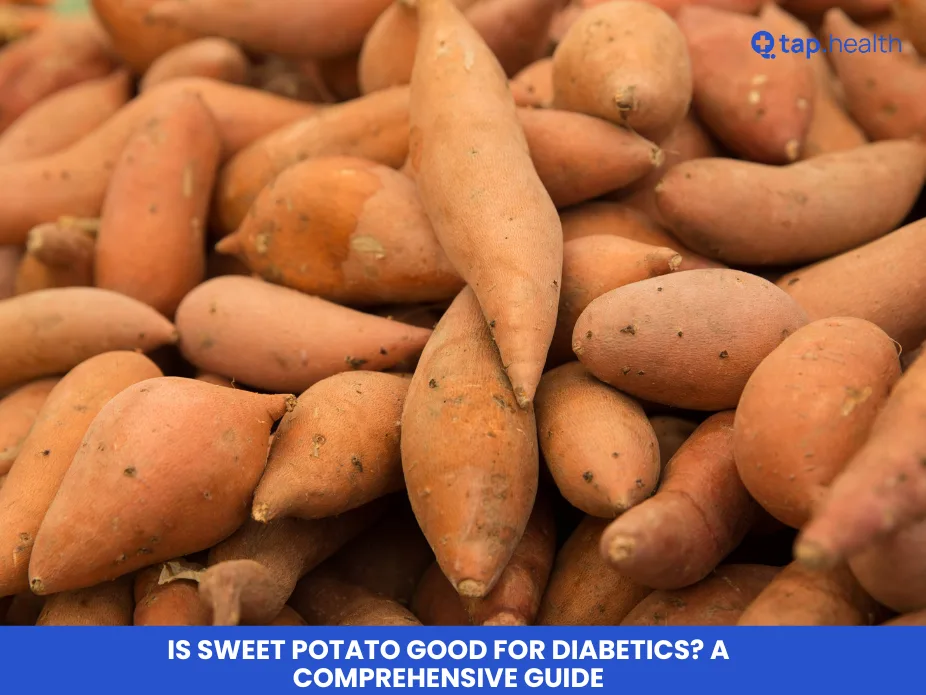Sweet potatoes are often hailed as a nutritious food choice, but for individuals with diabetes, the question arises: Are sweet potatoes a suitable option for managing blood sugar levels? This comprehensive guide examines the nutritional profile of sweet potatoes, their potential benefits and risks for diabetics, and expert recommendations.
Nutritional Composition of Sweet Potatoes
Sweet potatoes are a versatile and nutrient-dense food. Here’s a closer look at their nutritional profile:
Carbohydrates and Glycemic Index
A medium-sized sweet potato (about 5 inches long) contains approximately 26 grams of carbohydrates and 4 grams of dietary fiber. The glycemic index (GI) of sweet potatoes can vary depending on the cooking method, but it generally falls within the medium range, typically between 44 and 94 based on the variety and preparation (source: Glycemic Index Foundation). This means sweet potatoes can cause a moderate increase in blood sugar levels.
Fiber Content
Sweet potatoes are an excellent source of dietary fiber, which is beneficial for digestive health and can help regulate blood sugar levels. The fiber content can slow the absorption of glucose, preventing rapid spikes in blood sugar levels. A medium sweet potato provides about 4 grams of fiber (source: USDA FoodData Central).
Vitamins and Minerals
Sweet potatoes are rich in several essential vitamins and minerals, including:
- Vitamin A: Sweet potatoes are particularly high in beta-carotene, which the body converts into vitamin A. This vitamin is crucial for eye health and immune function.
- Vitamin C: Important for immune health and skin integrity.
- Potassium: Helps maintain healthy blood pressure levels.
Benefits of Sweet Potatoes for Diabetics
1. Low Glycemic Load
Although sweet potatoes have a moderate glycemic index, their glycemic load (GL) is relatively low due to their fiber content. Glycemic load considers both the quality and quantity of carbohydrates, making it a more accurate reflection of how a food affects blood sugar levels. Foods with a lower glycemic load are better for blood sugar management, which is a positive aspect of sweet potatoes.
2. Rich in Antioxidants
Sweet potatoes are packed with antioxidants, particularly beta-carotene. Antioxidants can help reduce oxidative stress and inflammation, which are often elevated in individuals with diabetes. Reducing oxidative stress may help lower the risk of diabetes-related complications.
3. High Fiber Content
The fiber in sweet potatoes aids in digestion and helps regulate blood sugar levels. High-fiber foods can promote satiety, making it easier to manage weight—an essential factor for diabetes management.
4. Nutrient Density
Sweet potatoes are nutrient-dense, providing a range of vitamins and minerals that support overall health. Including nutrient-dense foods in the diet can help ensure that individuals with diabetes meet their nutritional needs without excessive calorie intake.
Potential Risks and Concerns
While sweet potatoes have many benefits, there are some considerations for diabetics:
1. Portion Control
Due to their carbohydrate content, portion control is essential. Consuming large quantities of sweet potatoes can lead to increased blood sugar levels. It’s advisable to stick to a moderate serving size, such as ½ to 1 medium sweet potato, depending on individual carbohydrate goals.
2. Preparation Methods
The way sweet potatoes are prepared can significantly affect their impact on blood sugar levels. For example, frying sweet potatoes or adding sugary toppings (like marshmallows) can increase their glycemic index and overall carbohydrate content. Baking, boiling, or steaming sweet potatoes without added sugars or fats is preferable.
3. Individual Responses
People with diabetes can respond differently to various foods. It’s essential for individuals to monitor their blood sugar levels after consuming sweet potatoes to understand their personal glycemic response.
Expert Recommendations
Health professionals generally consider sweet potatoes a healthy addition to a diabetic diet when consumed in moderation. Here are some key recommendations:
- Choose Whole Sweet Potatoes: Opt for whole, unprocessed sweet potatoes rather than processed forms (like sweet potato fries or chips) that may contain added sugars and unhealthy fats.
- Watch Portions: Stick to moderate serving sizes, aiming for ½ to 1 medium sweet potato per meal.
- Balance with Other Foods: Combine sweet potatoes with proteins and healthy fats to create a balanced meal, which can help stabilize blood sugar levels.
- Monitor Blood Sugar: Keep track of blood sugar levels after consuming sweet potatoes to determine individual responses.
- Experiment with Cooking Methods: Baking, boiling, or steaming sweet potatoes can help retain their nutrients and lower their glycemic impact compared to frying.
Conclusion
In conclusion, sweet potatoes can be a nutritious and beneficial addition to a diabetes-friendly diet when consumed in moderation and prepared properly. Their low glycemic load, high fiber content, and rich nutrient profile offer several advantages for blood sugar management and overall health.As with any dietary change, individuals with diabetes should consult their healthcare provider or a registered dietitian to ensure that sweet potatoes are incorporated safely and effectively into their meal plans. By understanding portion sizes, preparation methods, and individual responses, sweet potatoes can be enjoyed as part of a balanced diet that supports diabetes management.
FAQs on Is Sweet Potato Good for Diabetics?
- Can diabetics eat sweet potatoes?
- Yes, diabetics can eat sweet potatoes in moderation as part of a balanced diet.
- How should sweet potatoes be prepared for diabetics?
- Baking, boiling, or steaming are the best methods. Avoid frying or adding sugary toppings.
- What is the glycemic index of sweet potatoes?
- The glycemic index can vary but typically ranges from 44 to 94 depending on the variety and preparation method.
- Are sweet potatoes better than regular potatoes for diabetics?
- Sweet potatoes generally have a lower glycemic load and are richer in nutrients like beta-carotene.
- How much sweet potato can a diabetic eat?
- A moderate serving size of ½ to 1 medium sweet potato is advisable, but individual needs may vary.



